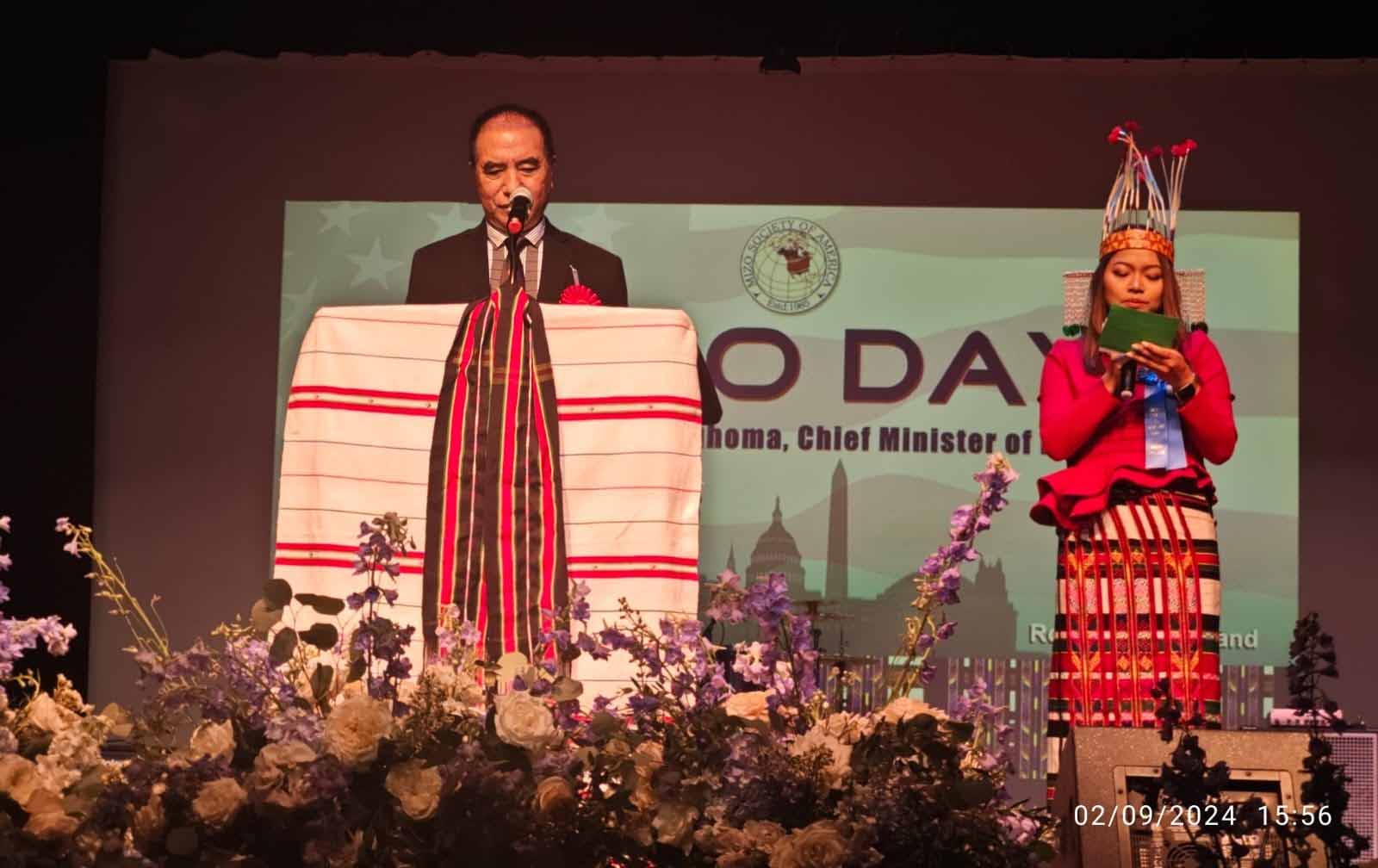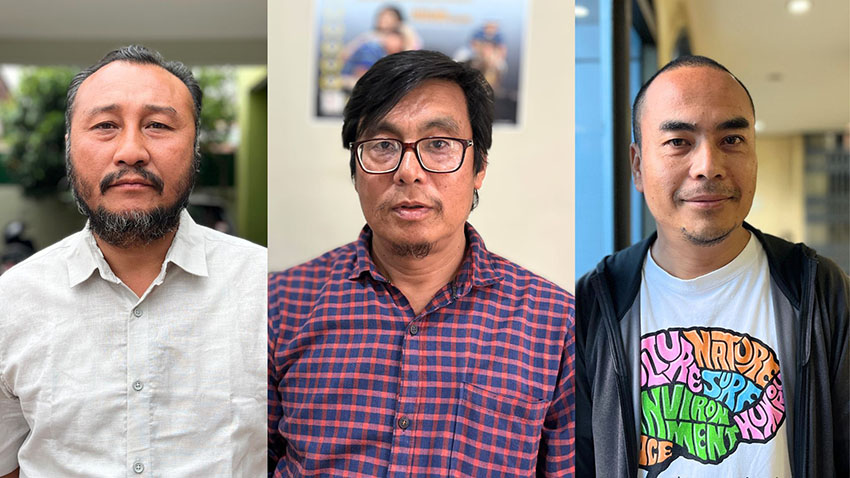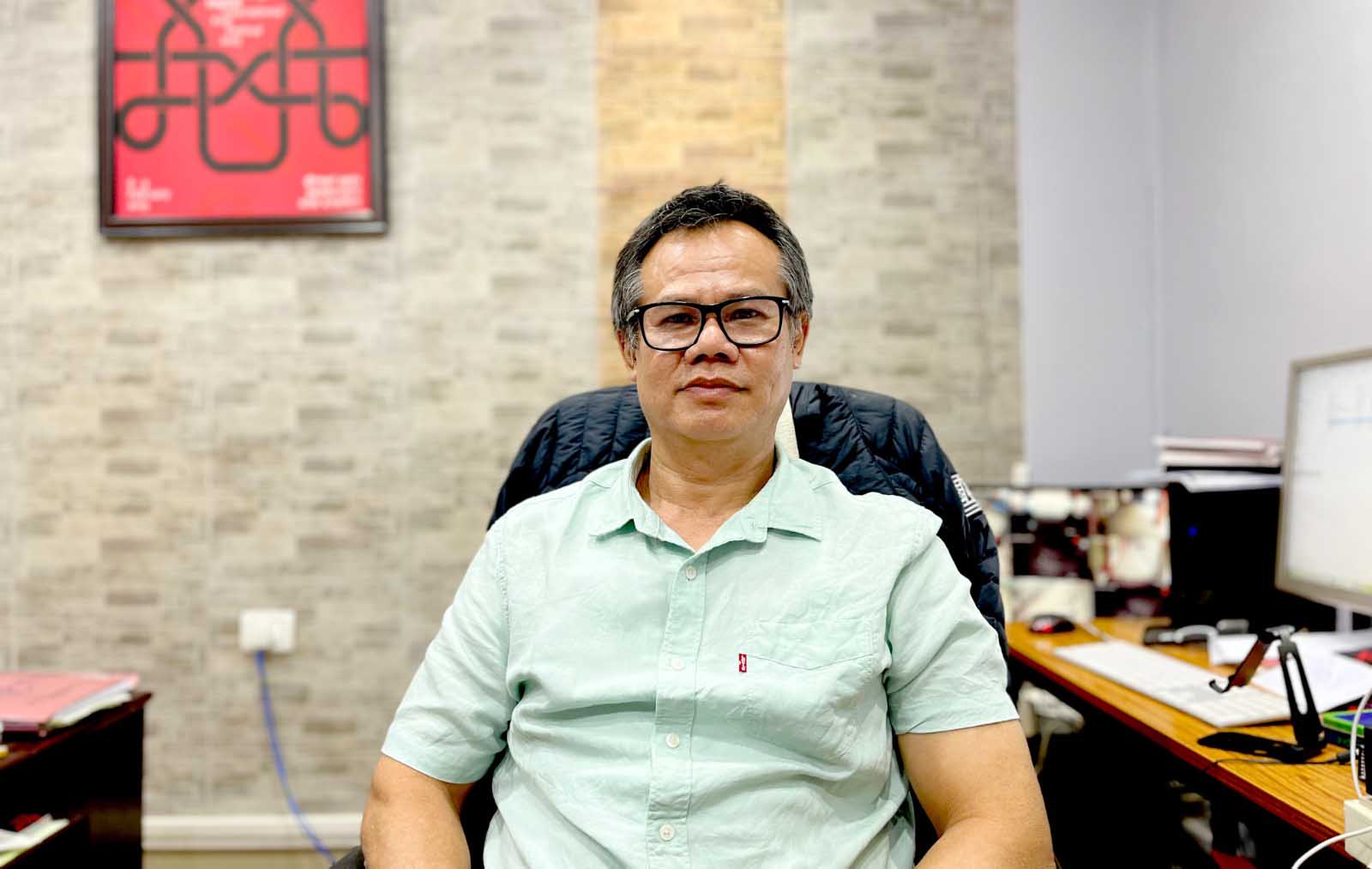While the three MLAs of Manipur belonging to Hmar, Paite and Vaiphei tribes had recently denounced the the ethnic nomenclature “Kuki-Zo” and its imposition on their tribes, Chief Minister of Mizoram Lalduhoma calls for a “Zo nationhood” as an overarching national identity of Kuki-Zomi tribes across India, Myanmar and Bangladesh.
The three MLAs – Ngursanglur Sanate of Tipaimukh Assembly Constituency, Vungzagin Valte of Thanlon Assembly Constituency and Lallian Mang Khaute (Manipur’s former Director General of Police) of Churachandpur Assembly Constituecy – in their separate press statements issued this year on August 22 and 23 have asserted that they want their own tribes to be called by their correct names, instead of being associated only with the term “Kuki-Zo” as an overarching ethnic identity. The three MLAs from the Hmar, Paite, and Vaiphei tribes said the term “Kuki-Zo” is not adequate to refer to their own tribes.
Notably, the three MLAs are amongst the seven MLAs of the ruling Bharatiya Janata Party (BJP) of the 10 MLAs belonging to Kukl-Zomi tribes who have been demanding a “Separate Administration” from Manipur since May 12, 2023 when the violent conflict between the Kuki-Zomi militants and Meiteis that erupted on May 3, 2023 entered second week.
The 10 MLAs belonging to Kukl-Zomi tribes of Manipur and representatives of the “Zo” ethnic tribes belonging to the Kuki-Zomi-Mizo-Hmar community in Manipur in collaboration with the NGO Coordination Committee in Mizoram had agreed to come under one umbrella and formed “Zo United” during a gathering on September 6, 2023 in the hall of the Central Committee of the Young Mizo Association (YMA) in the southern portion of Aizawl City.
Now, Mizoram Chief Minister Lalduhoma’s call for “Zo nationhood” which transcends the boundaries of three countries India, Myanmar and Bangladesh has become a hot topic for debate and discussions in Indian TV channels and local TV channels of Manipur in particular in this passing week. That too after two months of his call for “Zo nationhood” during a speech on September 4, 2024 in Indianapolis, USA and the Goa Chronicle published an article on November 3, 2024 questioning Lalduhoma’s call for “Zo nationhood” a separatist agenda to divide Northeast India.
Then, a section of the speech made by Mizoram Chief Minister M Lalduhoma in Indianapolis, where he addressed members of the “Zo” Diasporas on September 4, was widely circulated online after the Goa Chronicle article published on November 3.
On September 4, 2024, in Indianapolis, USA, the Chief Minister of Mizoram, Lalduhoma delivered a speech with a powerful call for a united “Zo nation” for the Chin-Kuki-Zomi tribes beyond India’s borders to encompass culturally and religiously connected tribes in Bangladesh and Myanmar. His words aimed to foster a sense of unity among these dispersed communities, but the underlying implications have sparked concerns about creating a political entity that could destabilize geopolitical landscape between India, Myanmar and Bangladesh.
The section of the speech that drew the attention of many observers in India and Manipur in particular said, “As I approach the end of my speech, I want to let everyone here know that the primary reason I accepted the invitation to visit the United States is to seek a path towards unity for all of us. We are one people—brothers and sisters—and we cannot afford to be divided or apart from one another. I want us to have the conviction and confidence that one day, through the strength of God, who made us a nation, we will rise together under one leadership to achieve our destiny of nationhood. While a country may have borders, a true nation transcends such limitations. We have been unjustly divided, forced to exist under three different governments in three different countries, and this is something we can never accept.”
Through this section of his speech using phrases like, through the strength of God, who made us a nation, we will rise under one leadership to achieve our destiny of nationhood and forced to exist under three different governments in three different countries, CM Lalduhoma invoked a shared cultural and religious identity, emphasising that the Chin-Kuki-Zomi people have a historical claim to be one nation despite the political boundaries that currently separate them.
Further, Lalduhoma’s use of words like, forced to exist under three different governments in three different countries raises questions about his acceptance of Indian sovereignty while holding the highest office of a state of India as Chief Minister of Mizoram.
The Chin-Kuki-Zomi tribes are now spread across India’s Manipur and Mizoram states, as well as parts of Bangladesh and Myanmar, and share linguistic, cultural, and religious ties that make them feel connected across borders.
Therefore, whether Lalduhoma’s call for “Zo nationhood” implies Sami model of cultural unity and indigenous rights of the Sami people who are indigenous in the border areas across Finland, Norway, Sweden and Russia or in the line of Pan Naga Hoho, a cultural institution which embraces the Nagas of Arunachal, Nagaland, Manipur (and Myanmar) as Government of India proposed as transitional to Naga integration under one political roof in the process of peace talk with the Isak-Muivah faction of the National Socialist Council of Nagaland – NSCN (IM).
However, Lalduhoma’s speech appears to transcend a cultural landscape but setting an assertive vision of political unity of the tribes across India – particularly Manipur and Mizoram – Myanmar and Bangladesh under an overarching nomenclature “Zo nation” considering cultural and religious similarities in spite of opposition to the nomenclature by many tribes.
On the other hand, in Maryland, on September 2, Mizoram Chief Minister Lalduhoma spoke of the Zo Reunification Organisation (ZORO) movement of 1988 and proposed the possibility of uniting the “Zo” people of India, Myanmar, and Bangladesh under Indian governance. His speech suggested a vision of integration within India’s framework: “The main objective of the ZORO movement in 1988 was Zo-Reunification within India. Can the ‘Zo’ people in India, Burma, and Bangladesh today aspire to be reunited under India?”
However, Lalduhoma acknowledged that while challenging, this goal might not be “so far-fetched” given today’s geopolitical landscape. Aligning with a vision that India could provide a shared home for the “Zo” people, the Chief Minister Lalduhoma said, “Looking at the geopolitical realities of our time, it may not be so farfetched to think this could be a possibility one day. Perhaps fate has this reunification in store for us in the future. Also, I am not oblivious to the huge responsibility I bear in this regard, towards contributing to making this dream a reality. For now, I can only say that I eagerly await the day and time when the question I have posed above is answered.”
In his speeches, the Chief Minister of Mizoram Lalduhoma uses “Zo nation” with ambiguity. In Maryland, he appears to represent the interests of an Indian state uniting all the “Zo tribes” within the Indian Union. Yet, in Indianapolis, his expressions seemed to transcend the political boundaries of India, Myanmar and Bangladesh, implying an aspiration for a political nationhood. Thus leaves threatening the territorial integrity of Manipur and India’s sovereignty. It helps provoking further the people of Manipur particularly the Meiteis and Nagas. Or is there some kind of understanding between the Government of India and the Mizoram Chief Minister Lalduhoma to play some kind of role in the present geopolitical context concerning Manipur and Myanmar since Lalduhoma visited USA and gave his speech with his itinerary approved by India’s External Affairs Ministry. Nevertheless, Lalduhoma’s “Zo nationhood” needs clarification. It challenges the very definition of nationhood.
Meanwhile, reports said that the spokesperson for the Ministry of External Affairs, Randhir Jaiswal stated in weekly media briefing on Thursday, November 7 that he has yet to review Lalduhoma’s comments and will respond once more clarity is obtained. “We have had issues along the India-Myanmar border due to Myanmar’s security situation,” Jaiswal said. “We previously discussed border fencing and some other proposals, so I will come back to you once we have further clarity on the matter,” he told reporters on Thursday (November 7).
However, the question is – why does the Government of India remain silent over the controversial speech of Mizoram Chief Minister Lalduhoma?












